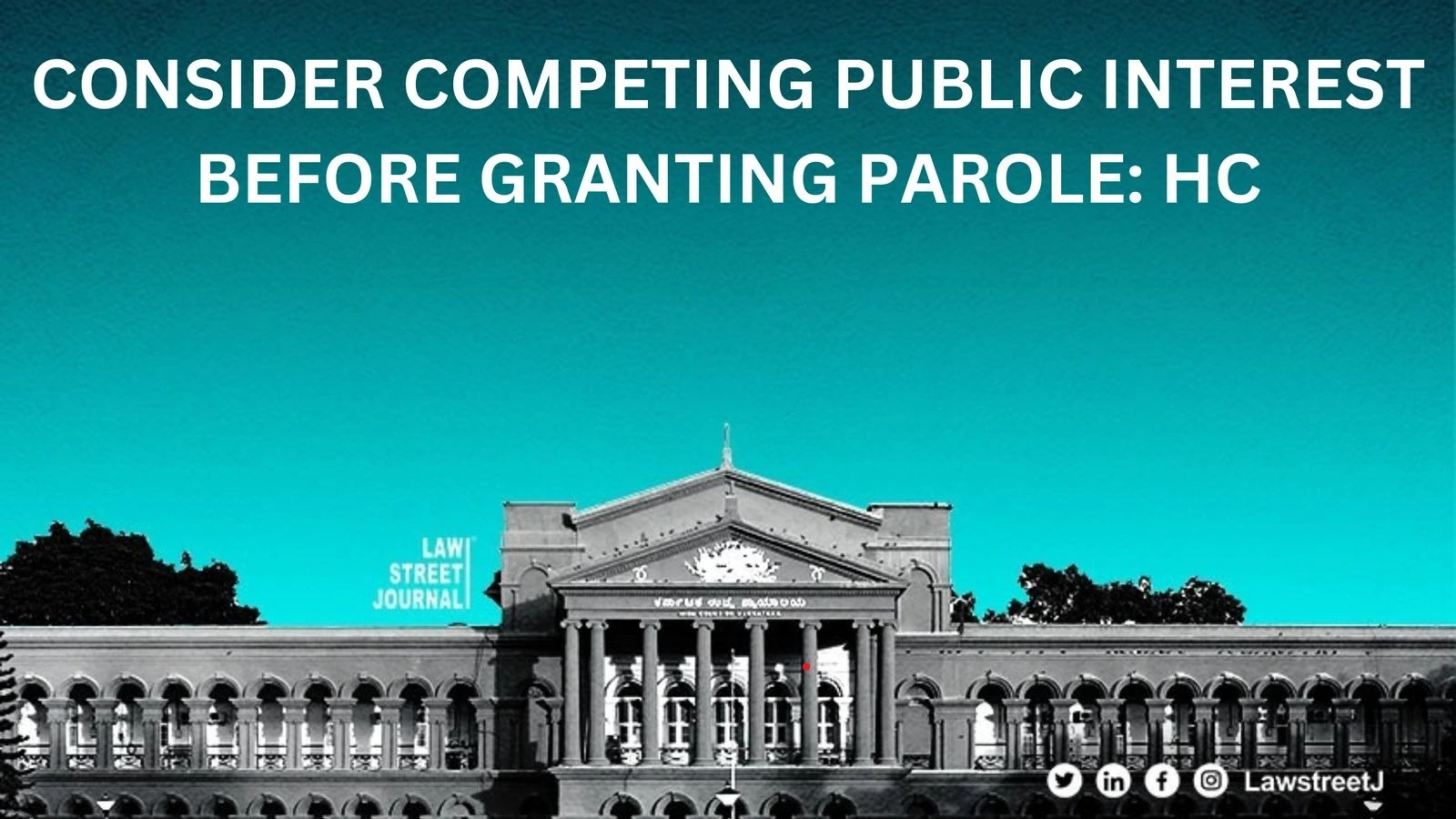BENGALURU: While considering a plea moved by serial killer, B Umesh Reddy, seeking parole, the Karnataka High Court observed that while granting parole or furlough ingrained in the reformation theory of sentencing, other competing public interest should be considered.
The Apex Court holds that, while granting parole or furlough ingrained in the reformation theory of sentencing, other competing public interest has also to be kept in mind, while deciding as to whether in a particular case parole is to be granted or not. The public interest demands that, those who are habitual offenders and may have the tendency to commit the crime again on their parole, or have the tendency to become a threat to the law and order of the society, should not be released on parole, Justice M Nagaprasanna of the High Court observed.
Reddy was convicted and sentenced to suffer death sentence. However, the Supreme Court commuted the death sentence to the sentence of life imprisonment, with a rider that he would undergo minimum sentence of 30 years. And that, any application for remission would be considered only after he undergoes actual sentence of 30 years.
Senior Advocate Hashmath Pasha appearing for Reddy submitted that once the death sentence is converted to imprisonment for life, he becomes a convict like any other convict for the offences punishable under Section 302 or 376 of the IPC. He was seeking parole for 30 to take care of his ailing mother.
The Additional Advocate General C S Pradeep, countering the plea, submitted that every convict cannot be released on parole. Many factors will have to be considered before release of the convict - on parole, especially when his remission application was also rejected. The petitioner is a dreaded criminal, and he is a serial killer - he was a Police Constable who committed series of rapes and murders.
After looking at the rival submissions, the court opined that in every case, theres no compulsion to grant parole for just asking. Both sides of the coin will have to be considered, one, the necessity for grant of parole ingrained in the reformation theory of sentencing, the other, competing public interest. Particularly in cases where the convicts are undergoing life imprisonment, the other side of the coin cannot be ignored.
Relying on Asfaq V. State of Rajasthan, it cannot be said that the petitioner is now a convict as any other convict and should be released on parole, the High Court opined.
Though 30 years rider would not be ipso facto applicable for consideration of application seeking parole, the same would not mean that he becomes entitled to grant of parole, as the circumstances narrated in the case of ASFAQ by the Apex Court would fit into fact situation on all its fours. Therefore, I decline to accede to the request of the petitioner for grant of parole.
The Court also looked at the police report filed which stated that if the petitioner is released on parole, the past enmity against the petitioner can become a threat to his life.
The report supra is also indicative of the fact that, if the petitioner would be released on parole, reminiscence of old enmity could emerge. The report indicates inter alia that in the event the petitioner is released on parole, the past enmity against the petitioner can become a threat to his life. The report supra is also indicative of the fact that, if the petitioner would be released on parole, reminiscence of old enmity could emerge.
The Court also didnt agree with petitioners reasoning for parole to take care of his mother.
The submission runs counter to the contents of the report. The petitioner has two brothers who would take care of the mother or even the repair of the house, which is said to be in a dilapidated condition. Both the reasons projected by the petitioner suffer from want of tenability.







![Karnataka High Court: Cabinet Rank Status Not Equivalent to Ministerial Position [Read Order]](/secure/uploads/2023/09/lj_2318_fc1b99b7-aeed-472b-836e-33750bedb394.jpg)


![Woman living in adultery cannot claim maintenance: Karnataka High Court [Read Order]](/secure/uploads/2023/10/lj_3083_Women_living.jpg)




